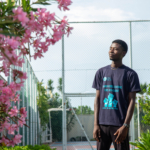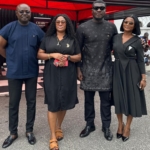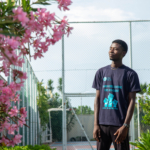
“We take this work of advocacy seriously, and we mean it when we say we don’t want any child to suffer as we did!”
Those are the words of 22-year-old James Otoo as he gave a presentation at the one-year anniversary review workshop of a campaign that the Ghana Chapter of the Global Survivors’ Network has been running, during a donor visit.
The auditorium erupted with applause and smiles on the faces of everyone gathered there. His courage was admirable and his conviction palpable. But James has not always been like this.
Eleven years ago, he was in a place of terror, where his childhood dreams were drowned in the murky waters of exploitation across Ghana’s borders.
At age eleven, James was just another child in a large family struggling to survive.
When his uncle arrived with promises of education and a better life, his parents saw hope. Little did they know they were signing away their son’s childhood and well-being.
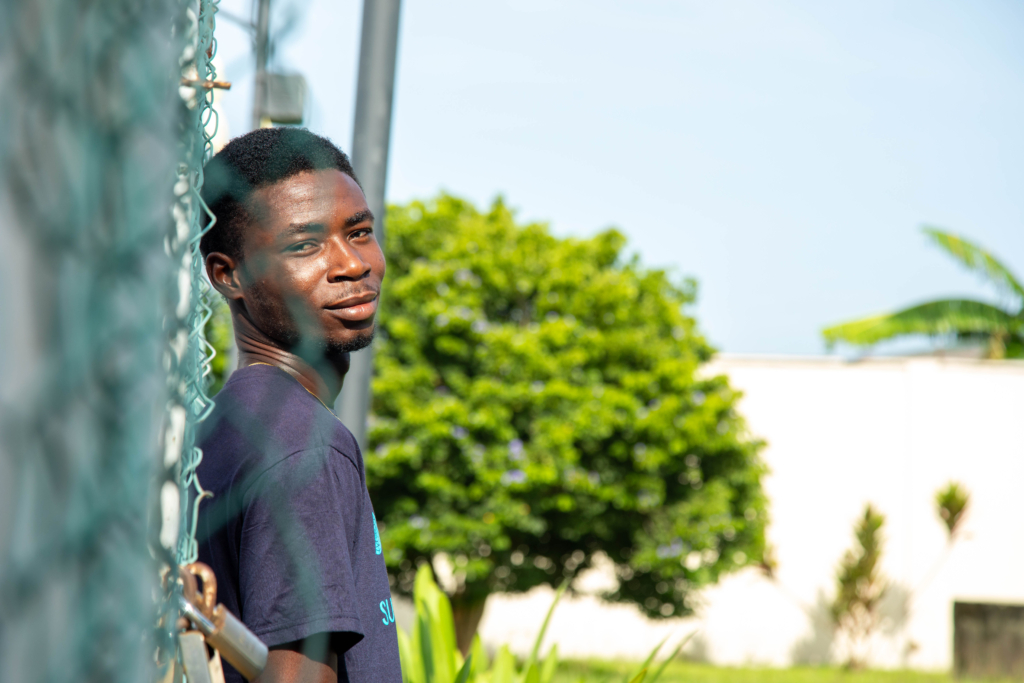
The first three weeks away from home seemed promising. Schooling at JOWAF, a border town in the Western region of Ghana, felt like a dream, a brief moment of normalcy. But his vacation would reveal a brutal truth that would change everything.
James was moved across the border into Côte d’Ivoire and handed over to a boat master by his uncle, with the promise to pick him up when school reopens, but that was never to be. He was trafficked.
Pushed into the lake, unable to swim, he “watched” as grown men laughed while he struggled, with water filling his lungs. “You’re here to work,” they told him, crushing any hope of returning to school. Each day became a battle for survival. Waking up before dawn, casting nets in treacherous waters, enduring beatings and constant threats.
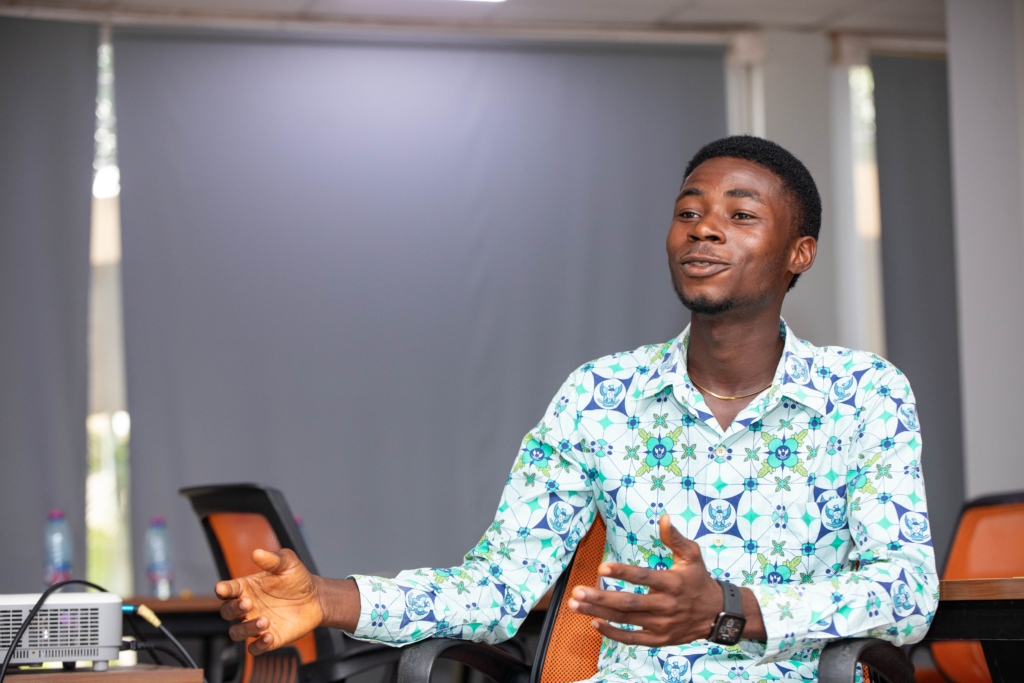
The most heart-stopping moment came when his own elder brother found him on the lake. He was stunned and angry because he, just like the rest of the family, believed James was living with his uncle at the border town and being given a better life.
For a moment, rescue seemed possible. He wanted to take James away, back to his family. But the boat master’s iron grip on the trafficking operation meant freedom was just a mirage. Nine months of silent suffering followed.
James would finally return to his family in a town in the Gomoa West district after they requested that said uncle bring him back. His family, embarrassed by his situation, kept him at a distance. His elder brother took him in at his residence in a nearby town.
The trauma carved deep wounds, not just physically, but also psychologically.
“Before, I was brilliant,” he recalls softly, “but the trafficking experience destroyed my confidence. I became afraid to even talk in class or answer questions. It affected how I connected with my teachers. If I was having problems, I didn’t know how to approach them,” James recalled.
His turning point came when IJM Ghana started recruiting survivors of child trafficking to form a survivor network that would lead the campaign against the menace, using their voices and lived experience.
“Since I joined GSN, I’ve totally changed,” James admits.
The training sessions became a channel of transformation. Initially trembling during public speaking, he found his voice through gentle and constant encouragement.
“During the first training, I was shaking,” he remembers. “But the social worker would encourage me, saying, ‘James, you can do it. You can speak. You can share your story.”
Slowly, he began to rebuild his confidence, learning that his voice could be a powerful tool for change.
Now he stands at the forefront of a grassroots movement, turning personal pain into powerful advocacy as president of the “Impact Makers” Chapter of GSN, in the Gomoa West District of the Central Region of Ghana.
From an initial membership of 10, the network now has 32 members, two years on. Many more survivors have found their voice and are willing to use it for good.
Their approach is direct and communal. They speak to students, engage social welfare officers, work with local leaders (including those in the church) to create a protective network around vulnerable children and sometimes confront potential traffickers (Parents included).
During community festivals and local gatherings, they use their platform to educate and inspire, showing that survivors are not defined by their past, but by their courage to create change.
James has secured his community chief’s commitment to pass a by-law that would officially outlaw child trafficking in the community, a cornerstone of the GSN campaign’s community charter initiative.
The impact is tangible. Scores of children have returned to their communities and others have been rescued, thanks to the group’s relentless efforts. Awareness is very high, and he is now a trusted voice in the community.
James’ story represents more than personal triumph. It’s an example of what can be achieved if survivors are empowered. They can transform their deepest wounds into powerful instruments of change.
He also represents hope for the countless children trapped in similar situations across the country and beyond.
As we mark International Day of Trafficking in Persons, James’ story is a reminder of the dark realities of trafficking in various forms happening across the country and how the menace can be addressed with concerted efforts and deliberate actions.
As James stands at the crossroads of securing a community-wide charter against child trafficking, he says to all survivors, “our stories have power, and our voices have the power to create change in our communities. Children are still suffering, so let’s now act to end child trafficking”
- President Commissions 36.5 Million Dollars Hospital In The Tain District
- You Will Not Go Free For Killing An Hard Working MP – Akufo-Addo To MP’s Killer
- I Will Lead You To Victory – Ato Forson Assures NDC Supporters
Visit Our Social Media for More

